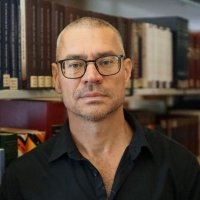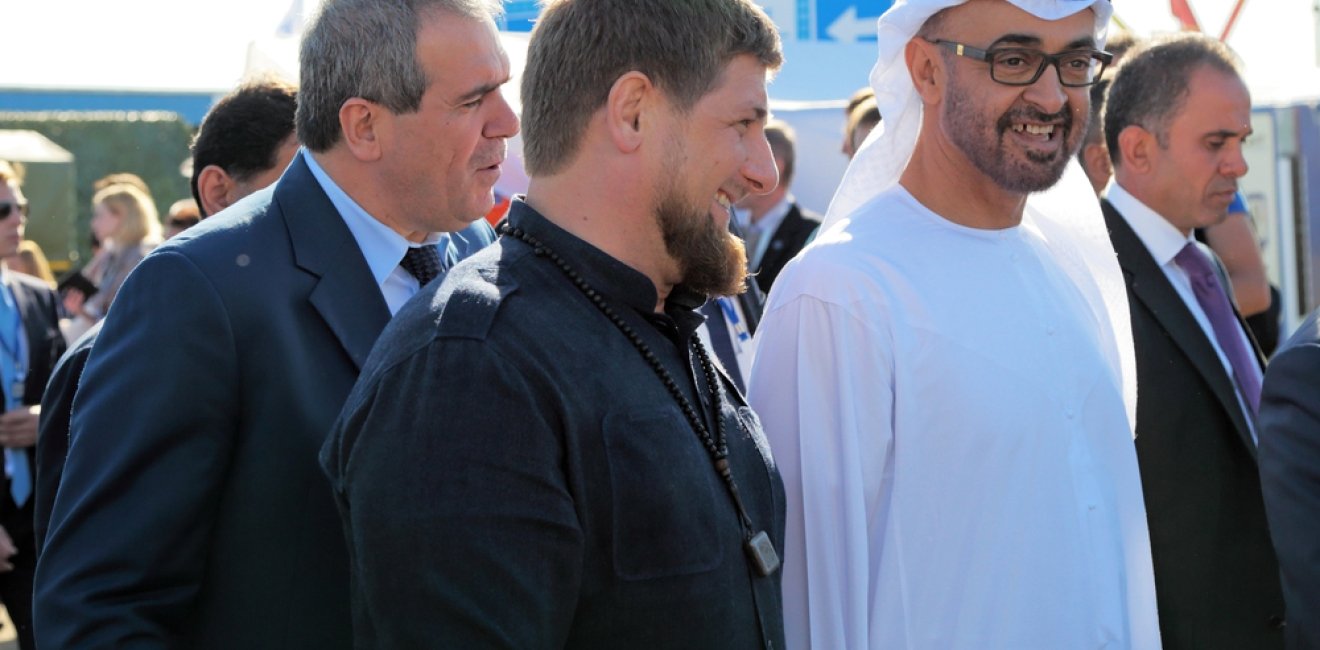
A blog of the Kennan Institute
When Hamas attacked Israel on October 7, Russian nationalists and so-called “Z” propaganda voices rejoiced. Propagandist Margarita Simonyan snidely commented on many “pacifist” expatriates who had left Russia for Israel after the beginning of the war with Ukraine and might now want to return to Russia.
The Wagner-affiliated Telegram channel retranslated Hamas’s point of view and described the attack as the “denazification and demilitarization” of Israel. A set of Russian-language X (formerly Twitter) accounts and Telegram channels have shared a false report claiming that the investigative group Bellingcat had verified Ukrainian weapons sales to Hamas.
Russian president Vladimir Putin blamed the “failure of American policy” for the violence. In a phone conversation, Putin and Turkey’s president Recep Tayyip Erdoğan called for a return to the two-state solution formula that envisages the creation of an independent Palestinian state within the 1967 borders, with a capital in East Jerusalem.
For Putin, Hamas’s unexpected attack and the response of the Israeli military is a gift that diverts Western attention from the war in Ukraine and creates more chaos in global geopolitics. Putin thrives on chaos as long as it involves his real and perceived enemies. Putin has long been playing a balancing act, showing support to both Israeli and Palestinian leaders, although his current stance underlines the declining relationship between Russia and Israel.
An Opening for Kadyrov’s Rhetoric
The authoritarian leader of Chechnya, Ramzan Kadyrov, quickly joined the chorus of Russian propagandists. This self-proclaimed “infantry soldier” of Putin holds a unique position among Russia’s governors. He is the only regional leader who is unofficially allowed to interfere in Russian foreign policy, and he often uses this ticket to comment on issues related to Islam and the Muslim world.
Two days after Hamas’s bloody attack, Kadyrov issued a video statement to the “international community” in which he expressed his “full support for the Palestinian actions as their lands were taken by Israel in the past.” Kadyrov called for the creation of an international coalition of Muslim countries in order to influence “Western countries” and prevent Israel from “bombing the civilians” in Gaza.
Kadyrov claimed he is against the war and wants to stop it before it spreads around the world. He suggested that all Muslims of Russia and all Muslims of the world should support Palestine, and offered his units to go to the region as “peacekeepers.”
No other leaders of Muslim republics in Russia, let alone other Russian regions, made any statements on the conflict. The Grand Mufti of Russia, Ravil Gainutdin, issued a statement calling for peace, safety for civilians, and opening a dialogue.
Kadyrov’s Usefulness to the Kremlin
Kadyrov has played an important role in Russia’s relations with the Muslim world for years. In 2014, Kadyrov built a mosque, named after his late father Akhmat, near Jerusalem. In 2016, in response to the cartoons of the Prophet Muhammad published by Charlie Hebdo, Kadyrov organized a protest rally in Grozny, the capital of Chechnya. Tens of thousands of people attended this rally by order of Kadyrov, who announced on his Instagram channel that those who supported Charlie Hebdo were his personal enemies.
In 2020, both Kadyrov and the mufti of Chechnya, Salah Mezhiev, called French president Macron a terrorist. Both were commenting on the French president’s reaction to the beheading of French teacher Samuel Pati by a Chechen radical after the former showed the cartoons of the Prophet Muhammad in his class.
In 2017, when Myanmar’s military initiated the persecution and killings of Rohingya Muslims, Kadyrov lamented that he could not call a nuclear strike on forces persecuting the Rohingya. The Akhmat Kadyrov Foundation, named after Ramzan’s father and run by his mother, funded a regular supply of fresh water, food, and clothing for Rohingya who had fled to Bangladesh to escape persecution.
Once Russia joined forces with Bashar al Assad’s regime in Syria, the foundation, known for extorting money from many citizens in Chechnya, started its humanitarian mission in this war-torn country, providing clothing and food to refugees. In his role as a protector and representative of Muslims, Kadyrov started feeling so comfortable that on behalf of 30 million Russian Muslims he thanked Muslim countries for not joining the sanctions against Russia after that country began a full-scale invasion of Ukraine.
“Better Than Nothing” in Russia’s Relations with the Muslim Community
Following the bloody wars in Chechnya in the 1990s, Vladimir Putin prioritized his relationship with both Kadyrovs as an illustration of Russian peace with its Muslim minorities, translating it both domestically and internationally.
Putin had utilized Razman Kadyrov and his religious zeal by inviting him to be a part of delegations during foreign visits to Muslim countries. Kadyrov, on the other hand, has gained a certain level of influence and rapport in the international arena by speaking out on various Muslim causes, while occasionally clashing with the official Russian position.
In his speeches Kadyrov praises Putin, and therefore Russia’s tolerance of Islam. While the central government’s officials tacitly recognize Kadyrov’s say in Islam-related questions, Kadyrov appears sensitive to certain boundaries that he cannot overstep. Realizing the strategic importance of Sino-Russian relations, for example, Kadyrov does not criticize the suppression of Uyghurs in China.
Kadyrov’s statement on Palestine was shared widely by a variety of media in the Muslim world, including a Saudi-sponsored Arab news channel, RT Arabic, and a set of pro-Palestenian accounts with large followings.
In a situation where an isolated Russia desperately seeks allies in the global south, Kadyrov’s official and unofficial relations with Muslim leaders and his general popularity among different parts of the broader Muslim community provide additional diplomatic tools in the Kremlin’s toolbox, along with the Kremlin’s use of anticolonial rhetoric and the positioning of Russia as a peacemaker in the region. It seems that for Russian foreign relations, Kadyrov, who is sometimes contradictory, often scandalous, and rarely diplomatic, falls in the category of “better than nothing.”
The opinions expressed in this article are those solely of the author and do not reflect the views of the Kennan Institute.
Authors


Kennan Institute
The Kennan Institute is the premier US center for advanced research on Eurasia and the oldest and largest regional program at the Woodrow Wilson International Center for Scholars. The Kennan Institute is committed to improving American understanding of Russia, Ukraine, Central Asia, the South Caucasus, and the surrounding region through research and exchange. Read more

Explore More in The Russia File
Browse The Russia File
Chechnya as a Model of Modern Russia

Russia’s Indigenous Communities and the War in Ukraine

Gas and Power in a Changing US–Russia Relationship

